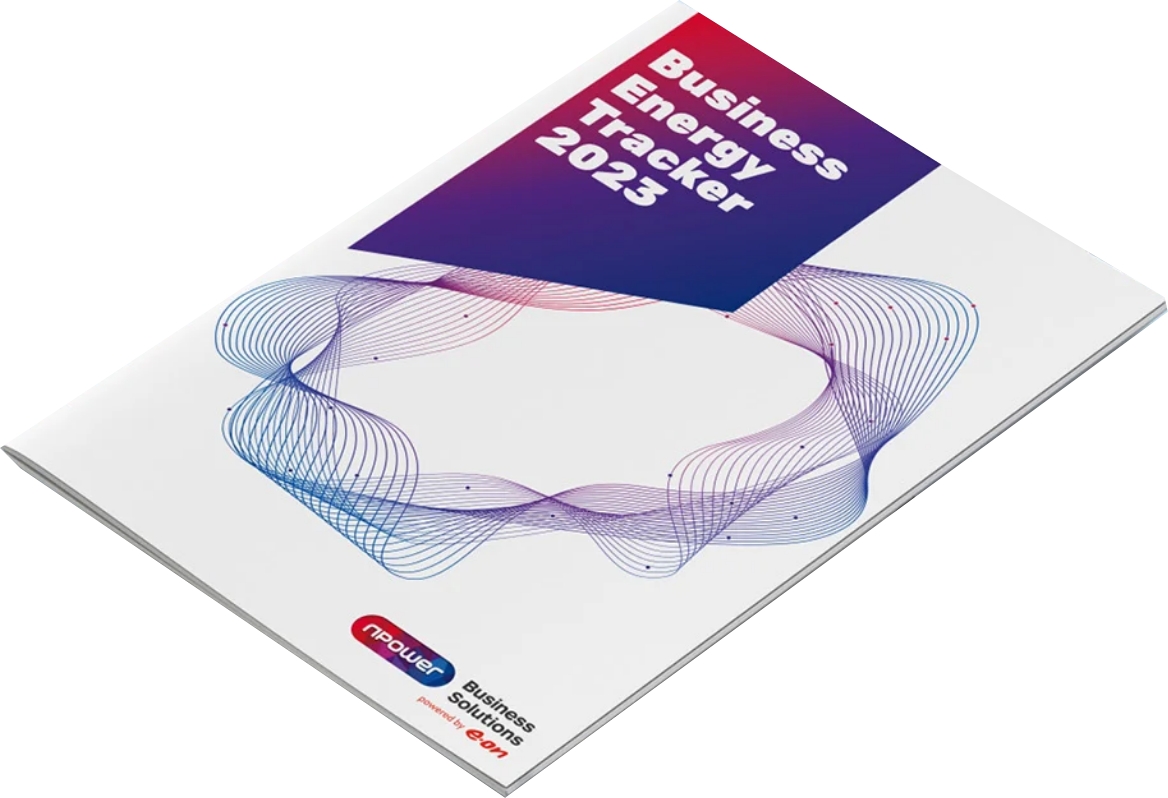Your essential guide to net zero funding
What does net zero mean for businesses?
The UK has committed to becoming carbon neutral by 2050. This will mean changing the way we heat our buildings and power industry, and will demand significant investment across energy and transport infrastructures.
We will need to make fundamental changes across the public and private sectors if we hope to meet these ambitious decarbonisation commitments.
For many organisations, investment in decarbonisation has already begun. After all, a more sustainable approach to operations makes good commercial sense. For others, finding funding for renewable energy projects is proving more difficult.

There were numerous events that affected the energy landscape in late 2021 and across 2022, such as the impact of the Russian invasion of Ukraine, the gas crisis in Europe, and the ongoing consequences of Covid-19. These have put budgets under stress, making economic recovery a top priority.
Read more on the events of 2022, and see how much we managed to predict.
Read our blog to find out more on what drives our energy prices.

What help is available on your journey to net zero?
Here, we will take a look at the renewable funding opportunities and green energy grants available to businesses that want to lower greenhouse gas (GHG) emissions and take their next steps towards a carbon neutral future.
The need to decarbonise is increasing due to direct consumer pressure, supply chain issues and climate change, so we will also explore how organisations from different sectors are responding and why sustainability is good for business.
The green energy grants available now
The UK government has made almost £5 billion of funding available to help UK businesses decarbonise their premises. Each clean energy grant will be available for different periods of time and will be awarded to businesses investing in green technologies to increase energy efficiency or reduce carbon emissions. A full list of past, present and forthcoming funding opportunities is available on gov.uk.


Energy Management Checklist
The energy management checklist can help you optimise your business’s energy use. It’s by no means definitive, but it is designed to provide you with additional guidance and useful pointers.
PPAs explained
Installing renewable energy generation on your site is costly and complex, with a strong but slow return on investment (ROI). If you have a requirement for quick ROI or cannot support the capital investment outlay, how do you move forward in the path to carbon neutrality?
Through a Power Purchase Agreement (PPA), you have the option to hand the project over to a third party expert who will fund, design and build the on-site generation asset. The third party will then sell the energy generated to you at an agreed price. They will own the asset, so you won’t be able to sell any extra energy back to the grid. However, you will be able to agree with them on a price, which is usually set for a minimum of 10 years. This will ensure energy security regardless of market volatility.
If your business decides to start its own capital infrastructure project and own the renewable asset, we can help you minimise your exposure to third party costs. Our team can monitor and maintain the asset, so you won’t need in house capabilities. In this case, any excess energy can also be sold back to the grid, to create a new revenue stream for your business.


Funding solutions by renewable technology
Whether you’re just starting on your next zero journey, or you’re well on your way, one of the most crucial decisions you will need to make is which renewable energy technology will be right for your business.
As part of the E.ON Group, we can offer access to a wide range of sustainable generation technologies that will give you secure supply and reduce your grid dependence as well your carbon footprint.
- Solar Energy
- Combined heat and power (CHP)
- Wind Power
- Organic Rankine Cycle Technology (ORC)
- Heat Pumps
- Heat and power systems
- Biomass energy
If you already have a renewable generation asset, why not download our guide to help you make the most of it?

Your starting point - the Net Zero Calculator
To plan for the future, you need a clear picture of the present situation. To calculate your current emission levels and find out the best ways to reduce them, you can try our Net Zero Calculator.
This is a user-friendly, interactive tool that helps calculate current emissions, forecast emissions from now to 2050, and assess the impact of different green technologies in reducing your energy costs and environmental footprint.
Watch our video to learn more about the calculator.

Watch the video: Visualise, Optimise, Decarbonise
Read our 1 minute blog
Plans for 500% boost to solar by targeting ‘untapped’ commercial potential
Plot a path through the complexities of net zero
We’ll help you identify and implement the actions with maximum impact on emissions, plotting a clear path to net zero.
Decarbonise for a better future
Make the move to renewable supply and explore the benefits of on-site generation, battery storage and electric fleets.
Source and offset
Switch to our independently verified, 100% carbon neutral renewable electricity, so your business can report zero carbon emissions without additional evidence
This is achieved by matching the power you consume with the equivalent volume of renewable power supplied to the grid.
Generate
Generate your own energy on-site to sustainably deliver your business objectives and boost self-sufficiency and resilience
Charge
Electrify your carbon reduction journey with E.ON Drive. We can help you take your first steps into electric vehicle (EV) charging, find the ideal location for your charge points and even manage your EV project from design to installation
Source and offset
Build energy resilience to protect your operations and decrease your reliance on the grid with innovative energy storage solutions
Optimise your energy use
Rethink your relationship with the grid and optimise your energy use by shifting consumption, reducing usage or changing energy patterns.
Building energy management (BEM)
Optimise your on-site energy use with the help of our leading in-house Building Energy Management (BEM) capabilities
Energy efficiency and behavioural change
Maximise the impact of targeted, low-cost energy efficiency measures, deliver fast cost and carbon savings and improve staff engagement with your net zero activities
Flexibility and demand side response
Generate revenue, reduce costs and participate in flexibility markets with the help of our in-house Virtual Power Plant (VPP) and award-winning flexibility and Demand Side Response (DSR) services
Visualise the path you will take
Get complete visibility of your energy use with accurate metering and Intelligent Analytics, empowering you to make practical plans for the path ahead. We have a range of tools available to help:
Analyse and understand
Use the E.ON Energy Management Centre to remotely steer your assets and monitor your progress
Monitor and verify
Use accurate metering combined with insight from E.ON’s Optimum energy platform to conduct audits and feasibility studies
Plan and baseline
Work with our in-house team of design engineers to plan your bespoke roadmap
* Hover over the hexagons to find out more
Finding the right net zero funding opportunities for your business
Deciding how best to fund your green energy project can be difficult. If self-funding is an option, the first step forward will be building a business case and getting everyone on board. If no CAPEX is available, sharing the financial burden with a trusted partner may provide a more practical path. Either way, the availability of green energy grants should always be carefully researched at the offset, and there is support available to help you do that. Below are some resources which will help businesses of different sizes find the support they need.
Funding for corporate businesses
When your business needs to set green goals that are both ambitious and practical, without over-stressing your business or your budget, we can help.
Learn how Visualise, Optimise, Decarbonise can support you to find funding.
Three key green infrastructure funding issues affecting UK businesses
If securing funding for your on-site renewable energy or decarbonisation project is proving difficult, you are not alone. In fact, with so much pressure from policy makers for businesses to act now, the question of who should fund these projects can sometimes be contentious.
Here are three of the key funding issues affecting UK businesses today:
The difficulty of funding decarbonisation during the energy crisis
As ongoing economic uncertainty continues to create challenges for UK organisations, it’s possible that some will put sustainability initiatives on hold while more pressing financial needs are addressed. With 70% of businesses worried about the cost impact of carbon neutrality , what budget friendly options are out there?
Differing views on who should fund net zero
Recent research found businesses are optimistic about embracing carbon neutrality, but there is understandably concern about how the transition will be funded. Perhaps unsurprisingly, views on who should foot the bill vary according to who’s answering the question.
Investing while energy prices are rising
Energy consumers across every sector are feeling the pain of unprecedented rises in energy prices. Is investment in net zero a possible solution? Businesses can use green energy projects to increase resilience and reduce their exposure to energy price volatility, but it takes a longer-term outlook.
Net zero is fast becoming a collective priority across a range of sectors, and with less than thirty years to go before the UK’s 2050 target, fundamental changes are required across the board - from the way we heat our buildings to the cars we drive.
However, access to funding is cited as one of the major barriers to business investment in renewables projects and on-site generation. Discover what businesses told us about their future funding plans and how you too could shape an ambitious and practical net zero strategy for your business.

Many organisations are already generating their own power on-site, and their contribution could be crucial in reducing the UK’s reliance on imported natural gas.
Our new report, The Future of Energy: The critical role of business in a zero-carbon world investigates how businesses can support the UK’s transition to net zero while reducing their energy invoices.

Further Reading

Energy Security Plan
Department for Energy Security and Net Zero (DESNZ) publications March 2023
As part of the E.ON Group, we offer access to a wider portfolio of energy management and emissions-reducing products and solutions, which will allow you to cut costs and future-proof your business as the UK moves towards net zero
Would you like to start measuring and reducing your carbon emissions?







